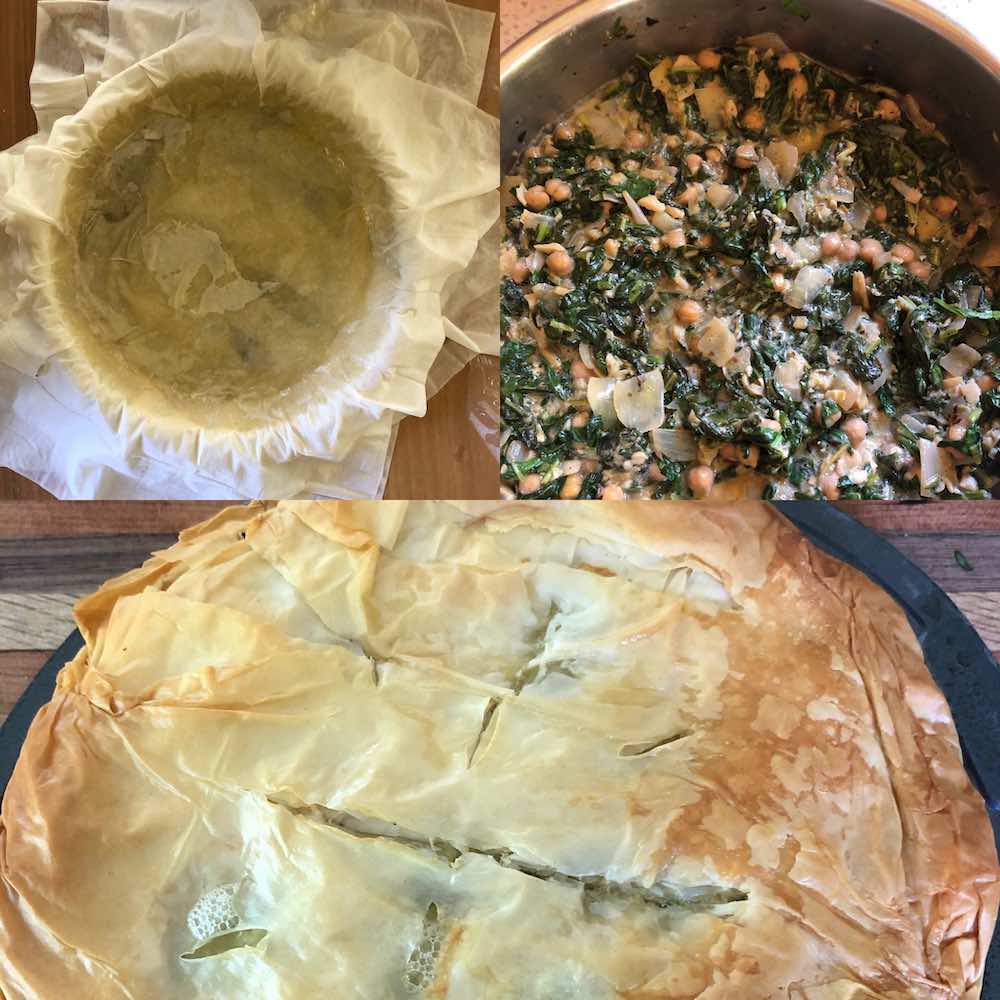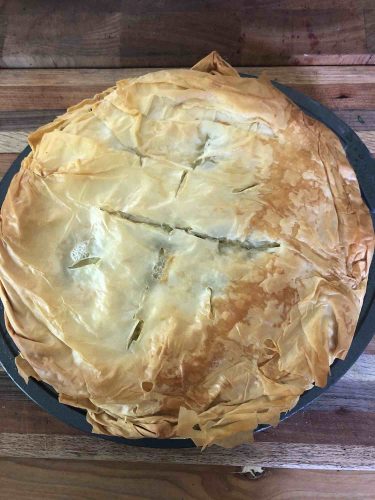Spring is a time of great change but also a time of growth, moisture, and increasing temperatures. Grounding, simple, and nourishing foods help pacify vata dosha, which is unsteady and can be thrown off by the constant change of the season. Incorporating lighter, bitter, and sour foods helps to reduce the abundance of kapha dosha (heavy, wet, cold energy) from the winter season. Traditionally, bitter greens, fresh herbs, and young vegetables help support the digestive system and awaken the senses for the brightness of spring and summer.
These recipes are some of my long-time favorites and can be made in large batches and shared with friends and family. Many can be served either warm or cool, depending on the time of day and weather. Ayurveda recommends most of our food be cooked and any raw foods eaten during the middle of the day when digestion is strongest. I hope you enjoy these staples from my family kitchen—and add your own personal spin to the dishes for you and your family.

Spring Greens Dinner Pie Recipe
This dinner pie is a great way to get a lot of vitamin and mineral-rich greens into your day. You can replace the garbanzo beans with chicken, if you’d like. It’s also a nice way to get fresh spring bitter greens (bitter is great for the liver) without being overly bitter.
Ingredients
- 1 tbsp olive oil
- 1 medium sweet onion, chopped fine
- 2 large garlic cloves, minced
- 8 oz of raw greens (kale, dandelion, collard, chard, or a mix), chopped
- ¼ cup parsley, chopped
- 1 tbsp fresh dill, chopped or ½ tablespoon of dried
- 1 can garbanzo beans, drained and rinsed
- Sea salt or kosher salt
- Black pepper
- 3 large eggs
- 5 oz of feta cheese or goat cheese
- 12 sheets of phyllo dough
- 4-6 tbsp of organic, unsalted butter, melted
Directions
- Preheat oven to 375 degrees. Brush a 10-inch pie pan or springform pan with olive oil.
- In a large bowl, beat the eggs for 5 minutes until they are foamy and a pale yellow, and then add feta cheese.
- In a large cast-iron pan or skillet on medium-high heat, add the oil and onion. Sauté, stirring occasionally for 3-5 minutes. Add the greens, dill, parsley, garlic, garbanzo beans, salt, pepper, and lemon. Cover with a tight-fitting lid, and reduce heat to low. Cook for 5 minutes, then remove from heat.
- Mix the greens into the large bowl with eggs and feta cheese.
- Spread a sheet of phyllo across the pie pan or springform so the edges hang over the side. Press the phyllo gently to fit the inside of the pan. Lightly brush with butter. Repeat 7 more times stacking the phyllo in a star pattern around the pan.
- Fill the phyllo pan with the greens mixture, and fold the edges over the top of the mix. One sheet at a time, cover the pan with 4 more sheets of phyllo dough in a star shape pattern, brushing each layer with butter. Tuck the edges of the phyllo into the pan while rolling and twisting to create an edge for the pie.
- Using a sharp knife, score the top of the pie to allow steam to release as it cooks. Bake the pie in the center of the oven until the crust is golden, about 35-40 minutes.
- Let cool slightly, and serve. Or, cool completely, wrap tightly in plastic wrap or a beeswax wrapper, and freeze for an easy weeknight meal.














